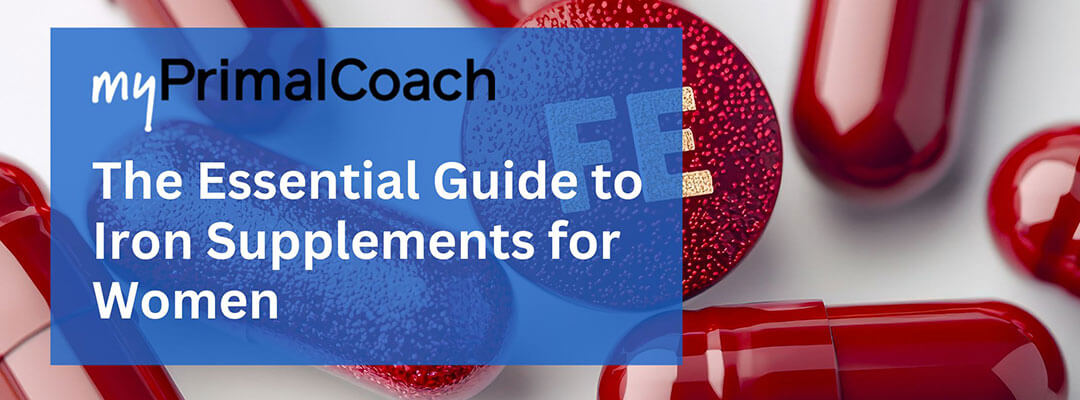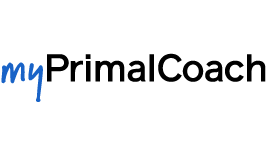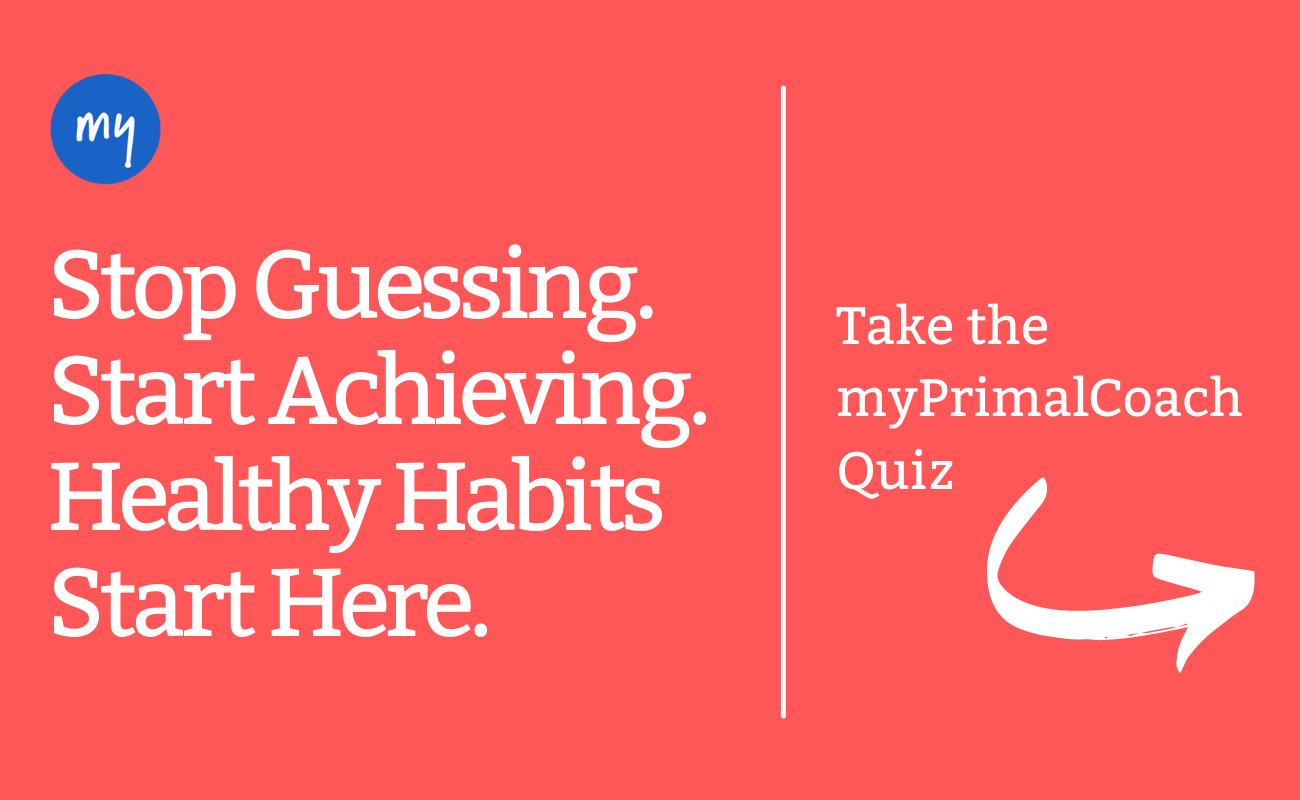Iron supplements for women are important for maintaining overall health throughout their life.

Iron supplements for women hold many health benefits.
Many women find themselves in need of iron supplements due to factors like menstruation, pregnancy, or dietary restrictions. While supplements can effectively combat iron deficiency and its associated symptoms, it's important to approach them with care and awareness. There can be too much of a good thing when it comes to iron supplements for women.
Understanding the benefits, potential side effects, and proper usage of iron supplements can help women make informed decisions about their health. Keep reading to explore the importance of iron for women, the benefits of supplementation, and the precautions necessary to ensure safe and effective use.
What Is Iron?
Iron is a mineral and a component of hemoglobin; a protein found in red blood cells.
Iron performs several jobs in the body including:.
- Transportation of oxygen from the lungs to the body's tissues.
- Returning carbon dioxide to the lungs for exhalation.
- Various enzymatic processes such as energy production, and overall metabolism.
There are two main dietary forms of iron:
- Heme Iron: Found in animal sources such as red meat, poultry, and fish. Heme iron is more easily absorbed by the body.
- Non-heme Iron: Found in plant-based foods like beans, lentils, spinach, and fortified cereals. Non-heme iron is not absorbed as efficiently as heme iron.
The body regulates iron levels carefully. Both too little and too much iron can have significant health implications. Iron metabolism is crucial in maintaining the body's iron stores and ensuring iron homeostasis.
Unlike other minerals, there is no means of excreting iron from the body. This makes it easier for iron to reach dangerous levels. The body carefully balances iron absorption, utilization, and storage to prevent deficiencies or excesses.
When iron levels are optimal, the body efficiently supports vital functions like oxygen transport and cell metabolism. However, disruptions in this delicate balance can lead to complications like anemia or iron overload.
Iron needs vary significantly across different life stages for women. The amount needed is influenced by factors such as growth, menstrual cycles, and pregnancy.
Teenage girls typically have higher iron needs than adult women due to growth spurts and the onset of menstruation.
During pregnancy, a woman's iron needs substantially increase. Iron helps support the growing fetus and the need for increased blood volume. Adequate iron intake during pregnancy is vital to prevent anemia, which can affect both the mother's and baby's health. Iron is also crucial for forming hemoglobin, which carries oxygen to the mother and baby.
After menopause, women no longer lose iron through menstruation, and their iron needs decrease. While maintaining adequate iron levels is still important, the risk of iron overload increases. This is particularly true if supplementing without medical supervision.
Understanding these differences is essential for ensuring you get the appropriate amount of iron for your specific life stage.
Causes of Iron Deficiency in Women
Iron deficiency in women can arise from several factors, including:
- Menstrual Blood Loss: Women with heavy periods may lose significant amounts of iron through menstrual blood, leading to deficiency.
- Pregnancy: During pregnancy, a woman's body requires more iron to support the growing fetus and increased blood volume. This makes them more susceptible to deficiency. For this reason, most prenatal vitamins contain iron.
- Insufficient Dietary Intake: A diet low in iron-rich foods, particularly heme iron (found in animal products), can contribute to deficiency. Vegetarians and vegans are particularly at risk if they do not consume adequate amounts of iron from plant sources.
- Poor Absorption: Conditions such as Celiac disease, Crohn's disease, or other gastrointestinal disorders can impair iron absorption. Certain surgeries that affect the digestive tract can also lead to reduced iron absorption.
- Chronic Blood Loss: Health conditions such as ulcers, gastrointestinal bleeding, or frequent blood donation can result in chronic iron loss.
- Increased Nutritional Needs: Adolescents and young women may have increased iron needs due to growth spurts or increased activity levels. This may make them more prone to deficiency.
- Low Vitamin C Intake: Vitamin C enhances iron absorption, so a diet lacking in this vitamin can exacerbate iron deficiency.
- Certain Medications: Iron-depleting medications can reduce iron levels in the body or interfere with iron absorption. Some medicines can also increase the risk of gastrointestinal bleeding, contributing to deficiency. Blood thinners can impact iron levels in the body due to the increased risk of bleeding. Antacids can also affect iron absorption by altering stomach acidity.
- Genetic Conditions: Sickle cell anemia is a genetic blood disorder that affects iron absorption. Some individuals with sickle cell may experience anemia. Others may develop iron overload, making iron supplementation potentially harmful. Regular monitoring of iron levels is essential in those with sickle cell.
Symptoms of Iron Deficiency
Low iron levels in women can lead to iron deficiency anemia. This may present a range of symptoms, including physical and psychological ones:
- Fatigue: A common symptom, iron-depleted women often feel unusually tired and lack energy. This is due to insufficient oxygen delivery to the body's tissues.
- Pale Skin: Reduced hemoglobin levels can cause the skin to appear paler than usual.
- Shortness of Breath: Anemia can make physical activities more challenging. This is due to inadequate oxygen supply, which leads to breathlessness.
- Dizziness or Lightheadedness: Women may experience dizziness, especially when standing up quickly. This is because of lower blood oxygen levels.
- Cold Hands and Feet: Poor circulation resulting from low iron can cause extremities to feel cold.
- Brittle Nails: Nails may become weak, brittle, and more prone to breaking.
- Cravings for Non-Food Items: Some women may experience pica. Pica is a condition in which people crave unusual substances like dirt or ice.
- Headaches: Frequent headaches can occur due to reduced oxygen flow to the brain.
- Mood Changes: Women with low iron may experience mood swings or increased feelings of sadness and anxiety. This emotional instability can affect relationships and overall quality of life.
- Cognitive Impairment: Iron is essential for cognitive function. A deficiency can lead to difficulties with memory, attention, and problem-solving skills. This can contribute to brain fog.
- Stress and Anxiety: The physical symptoms of iron deficiency, such as weakness and dizziness, can make daily tasks stressful. This may further exacerbate feelings of anxiety.
- Decreased Motivation: Chronic fatigue and lack of energy can reduce motivation to engage in social activities or pursue interests. Over time, this may affect mental health.
- Sleep Disturbances: Low iron levels can also contribute to sleep issues. Poor sleep can further impact mood and cognitive function. This may create a cycle of fatigue and mental stress.
It's essential to consult a healthcare professional for an evaluation if you are experiencing these symptoms.
Types of Iron Supplements for Women
Several types of iron supplements are available, each differing in their form and how well the body absorbs them. Here are some common types:
- Ferrous Sulfate: This is one of the most commonly prescribed forms of iron. It contains a high percentage of elemental iron and is generally well-absorbed. Elemental iron is the form of iron absorbed by the body.
- Ferrous Gluconate: This form has a lower concentration of elemental iron compared to ferrous sulfate. It may be better tolerated and cause less gastrointestinal side effects.
- Ferrous Fumarate: Similar to ferrous sulfate and gluconate, this type also provides elemental iron but may be more suitable for those who experience irritation from other forms.
- Iron Polysaccharide Complex: This newer formulation minimizes gastrointestinal side effects and improves absorption. It is often marketed as a gentler alternative.
- Heme Iron Polypeptide: Derived from animal sources, heme iron is generally better absorbed than non-heme iron in plant-based supplements. It may be recommended for those with absorption issues.
- Iron Bisglycinate: A form of iron that is well-absorbed and tolerated, with fewer side effects like constipation. As reflected in its name, it binds iron to glycine, which enhances its availability in the body.
- Liquid Iron Supplements: These can be a good option for those with difficulty swallowing pills. They often come in flavored formulations to improve taste. Liquid forms of iron can lead to discoloration and iron stains on teeth enamel.
- Chewable Iron Tablets and Gummies: These are designed to be easily chewed and ingested. They are another good alternative for those who prefer not to swallow traditional iron pills. Chewable gummies often come in many flavors, making them appealing to both adults and children. Many gummy supplements are made with iron bisglycinate or other forms of iron that are gentler on the stomach. They may be better absorbed compared to some traditional iron supplements. However, they often contain added sugars and have a higher risk of overconsumption, thanks to their sweet taste.
Benefits of Iron Supplements for Women
Iron supplements can offer several benefits for women, particularly those at risk of iron deficiency. Here are some key benefits:
- Anemia Prevention: Iron is essential for producing hemoglobin. Proper iron levels help prevent iron deficiency anemia. Iron deficiency anemia often causes fatigue, weakness, and other health issues.
- Improved Energy Levels: Many women may experience fatigue or low energy due to insufficient iron. Iron supplements can help increase energy levels, especially when iron demands are higher during menstruation or pregnancy.
- Boosted Athletic Performance: Active women may benefit from iron supplements as iron plays a crucial role in muscle function and endurance. Adequate iron levels can help improve overall physical performance and reduce fatigue during exercise.
- Support During Menstruation: Women with heavy menstrual bleeding may lose more iron and might benefit from supplementation to replenish their iron stores and maintain proper levels.
- Support During Pregnancy: Pregnant women require more iron to support fetal development and prepare for blood volume expansion. Iron supplements can help prevent anemia during pregnancy and ensure a higher birth weight.
- Improved Overall Health: Maintaining adequate iron levels is essential for overall health, including immune function and cognitive performance.
Possible Side Effects of Iron Supplements for Women
Iron supplements can provide important benefits but may also have side effects, especially if taken in excess or without medical supervision.
Some common side effects for women can include:
- Gastrointestinal Issues: Many people experience digestive problems such as nausea, constipation, diarrhea, or an upset stomach when taking iron supplements. It's often recommended to take them with food to help alleviate these symptoms.
- Stomach Pain: Some women may experience discomfort or cramping in their stomach when taking iron.
- Changes in Stool Color: Iron supplements can cause stools to become darker in color. This side effect is usually harmless but can be alarming when you're not expecting it.
- Allergic Reactions: Though rare, some individuals may have allergic Reactions to iron supplements, including rash, itching, or swelling.
- Metallic Taste: A metallic taste in the mouth can occur, which some may find unpleasant.
- Iron Overload: Taking too much iron can lead to a condition known as hemochromatosis, where excess iron accumulates in the body and can damage organs. This is more likely in individuals who do not have an iron deficiency.
Food Sources of Iron
There are some natural food sources of iron that can help boost your intake. Here are some primally-aligned options:
Heme Iron Sources (Animal-Based)
- Red Meat: Beef, lamb, and pork are excellent sources of heme iron.
- Poultry: Chicken, turkey, and duck, especially darker meat cuts, contain good amounts of iron.
- Seafood: Fish like tuna, salmon, and sardines, along with shellfish such as oysters, clams, and mussels, are rich in iron.
- Organ Meats: Liver and other organ meats (like kidney or heart) are extremely high in iron and other essential nutrients.
Non-heme Iron Sources (Plant-Based)
- Nuts and Seeds: Pumpkin seeds, sesame seeds, hemp seeds, cashews, and almonds provide a decent amount of iron.
- Leafy Greens: Spinach, Swiss chard, kale, and collard greens contain non-heme iron, although it is less readily absorbed.
- Certain Vegetables: Beets and potatoes (especially with skins) offer some iron and can be included in a balanced primal diet.
- Dried Fruits: Raisins, prunes, and apricots offer a small amount of iron and other nutrients.
- Prune Juice: Prune juice is a good source of iron, along with other nutrients. Prunes provide copper, which plays a key role in the proper transportation of iron within the body
- Dark Chocolate: Dark Chocolate is a tasty source of non-heme iron, choose high cocoa content for the best benefits and lower sugar levels.
To boost the absorption of non-heme iron, pair them with vitamin C-rich foods like bell peppers, citrus fruits, or tomatoes.
Summary
Iron supplements for women come with a whole host of benefits. However, a delicate balance is essential. Too little iron comes with a risk of anemia and bothersome symptoms. Conversely, iron overdose, or iron toxicity can potentially lead to severe health issues. Working with a medical professional to manage iron intake and monitor your levels with blood tests is important. Your healthcare professional can help you find the proper iron supplement dosage for your needs. A myPrimalCoach can help you navigate food choices and monitor your symptoms.

